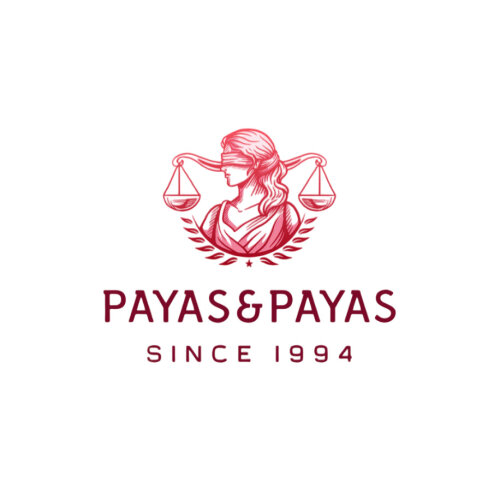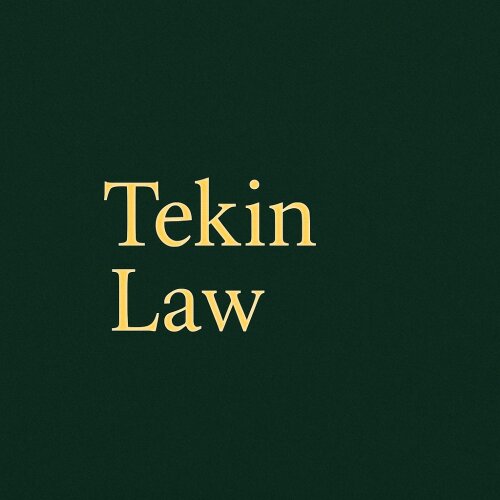Best Business Lawyers in Turkey
Share your needs with us, get contacted by law firms.
Free. Takes 2 min.
Or refine your search by selecting a city:
List of the best lawyers in Turkey
Legal guides written by Tekin Law Firm:
- Arbitration in Turkey
Turkey Business Legal Articles
Browse our 4 legal articles about Business in Turkey written by expert lawyers.
- When Can a Business License Be Revoked in Turkey?
- Table of ContentsIntroduction: The Existential Risks to a Business in TürkiyeThe Legal Framework for Corporate SanctionsWhen Can a Business License Be Revoked?The Core Condition: Abuse of Public AuthorityPractical ExamplesAsset Confiscation vs. Asset Freezes: A Critical DistinctionAsset Confiscation (Post-Conviction Penalty)Asset Freezes and Trustee Appointment (Pre-Conviction Risk)Prevention as the Only Effective DefenseFor... Read more →
- Navigating Corporate Debt in Turkey: A Guide for Businesses
- In today's challenging economic climate, many businesses in Turkey find themselves struggling with commercial debt. Whether your company is dealing with business loans, trade liabilities, or other financial obligations, understanding the available debt relief options is crucial for regaining financial stability and ensuring operational viability. This guide explores the various... Read more →
- Understanding Turkish Labor Law: A Guide for Employers
- For businesses operating in Turkey, understanding the country's labor laws is essential for maintaining compliance and fostering positive workplace relations. Whether you're a foreign company establishing operations in Turkey or a local business seeking clarity on employment regulations, this comprehensive guide will help you navigate Turkish labor law with confidence.Turkey's... Read more →
About Business Law in Turkey
Business law in Turkey encompasses a wide array of legal disciplines that govern the formation, operation, and dissolution of businesses. This includes corporate law, mergers and acquisitions, employment law, intellectual property, and contract law, among others. Turkey's strategic location as a bridge between Europe and Asia makes it an attractive destination for international businesses. The continually evolving legal landscape in Turkey aims to align with international standards, providing a robust framework for both local and foreign investors.
Why You May Need a Lawyer
Engaging in business activities in Turkey can present myriad situations where legal advice is crucial. Common scenarios include:
- Setting up a business or branch office, which involves navigating local regulations, permits, and registration requirements.
- Negotiating contracts with partners, suppliers, or clients, where legal expertise can help mitigate risks and ensure enforceability.
- Dealing with employment-related issues, such as drafting employment contracts or handling disputes with employees.
- Protecting intellectual property, which is vital for companies intending to safeguard their innovations and brand identity.
- Complying with local tax laws and corporate obligations, including understanding applicable incentives and avoiding penalties.
- Managing mergers, acquisitions, or joint ventures, which require detailed due diligence and structuring.
- Resolving disputes through arbitration or litigation, should conflicts arise during business operations.
Local Laws Overview
Several key legal provisions are particularly relevant for those conducting business in Turkey:
- Company Types: Turkey recognizes several company structures, including Joint Stock Companies (A.Ș.), Limited Liability Companies (LTD), and Collective Companies, each with distinct legal and financial requirements.
- Foreign Investment Law: Turkey welcomes foreign investors with regulations designed to facilitate foreign direct investment (FDI), ensuring equal treatment and protection.
- Labor Law: Laws governing employment are comprehensive, covering employee rights, workplace safety, and termination processes.
- Taxation: The corporate tax rate and value-added tax (VAT) regulations are significant factors influencing business operations and profitability.
- Dispute Resolution: Commercial disputes can be resolved through either litigation or arbitration, with the latter gaining prominence for its efficiency.
Frequently Asked Questions
What legal structure should I choose for my business in Turkey?
The choice depends on factors such as liability, capital requirements, and operational flexibility. Common structures include Joint Stock Companies (A.Ș.) and Limited Liability Companies (LTD).
Is it mandatory to have a Turkish partner for foreign businesses?
No, it is not mandatory. Foreign investors can fully own companies in Turkey, except in certain regulated sectors.
What are the key compliance requirements for companies?
Compliance involves meeting tax obligations, filing annual reports, and adhering to regulatory requirements such as employment regulations and sector-specific standards.
How can I protect my intellectual property in Turkey?
Registration with the Turkish Patent and Trademark Office is essential for legally protecting trademarks, patents, and designs.
What are the main taxes a business must consider?
Key taxes include corporate income tax, VAT, withholding tax, and, where applicable, specific excise duties or environmental taxes.
How do I draft a legally binding contract in Turkey?
Contracts must adhere to local laws, be clear in terms and conditions, signed by authorized parties, and advisable to have legal counsel involved in drafting.
What are the options for resolving business disputes?
Options include litigation in Turkish courts or arbitration, often preferred for its speed and confidentiality.
Can I hire non-Turkish employees?
Yes, but they must obtain a work permit, and employers should comply with relevant employment provisions for foreign employees.
Are there special economic zones or incentives for businesses?
Yes, Turkey offers Free Zones and Organized Industrial Zones that provide tax exemptions and incentives to boost industrial and commercial activity.
How does the Data Protection Law affect my business?
Compliance with Turkey's KVKK (Data Protection Law) is mandatory when handling personal data, necessitating measures for data security and privacy.
Additional Resources
If you need more information, the following resources may be helpful:
- Ministry of Trade: Offers guidance on trade laws and regulations related to business activities in Turkey.
- Turkish Patent and Trademark Office: Provides services related to intellectual property protection.
- Union of Chambers and Commodity Exchanges of Turkey (TOBB): A valuable resource for networking and business support.
- Investment Office of the Presidency of the Republic of Turkey: Assists with insights and resources for foreign investors.
- Istanbul Arbitration Center (ISTAC): Offers alternative dispute resolution services for commercial conflicts.
Next Steps
If you require legal assistance in business, consider the following steps:
- Identify your specific legal needs based on business objectives and challenges.
- Research and select a reputable law firm or legal advisor with expertise in Turkish business law.
- Prepare all necessary documents and information about your business operations for consultations.
- Schedule a consultation to discuss your needs and receive advice tailored to your circumstances.
- Ensure written agreements are reviewed by a legal professional to protect your interests.
- Stay informed about legal updates that may impact your business by consulting regularly with your legal advisor.
Lawzana helps you find the best lawyers and law firms in Turkey through a curated and pre-screened list of qualified legal professionals. Our platform offers rankings and detailed profiles of attorneys and law firms, allowing you to compare based on practice areas, including Business, experience, and client feedback.
Each profile includes a description of the firm's areas of practice, client reviews, team members and partners, year of establishment, spoken languages, office locations, contact information, social media presence, and any published articles or resources. Most firms on our platform speak English and are experienced in both local and international legal matters.
Get a quote from top-rated law firms in Turkey — quickly, securely, and without unnecessary hassle.
Disclaimer:
The information provided on this page is for general informational purposes only and does not constitute legal advice. While we strive to ensure the accuracy and relevance of the content, legal information may change over time, and interpretations of the law can vary. You should always consult with a qualified legal professional for advice specific to your situation.
We disclaim all liability for actions taken or not taken based on the content of this page. If you believe any information is incorrect or outdated, please contact us, and we will review and update it where appropriate.
Browse business law firms by service in Turkey
Turkey Attorneys in related practice areas.
Browse business law firms by city in Turkey
Refine your search by selecting a city.

















